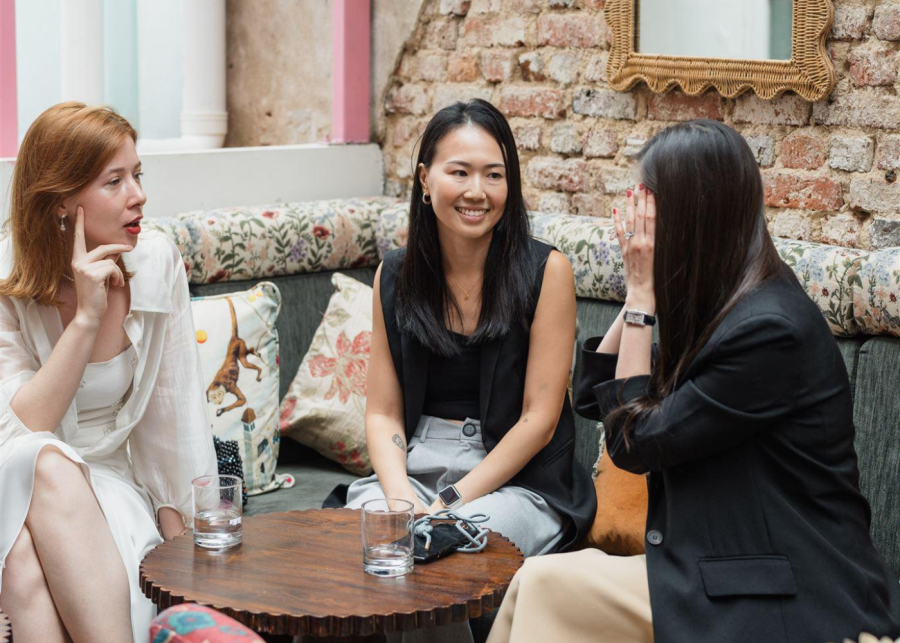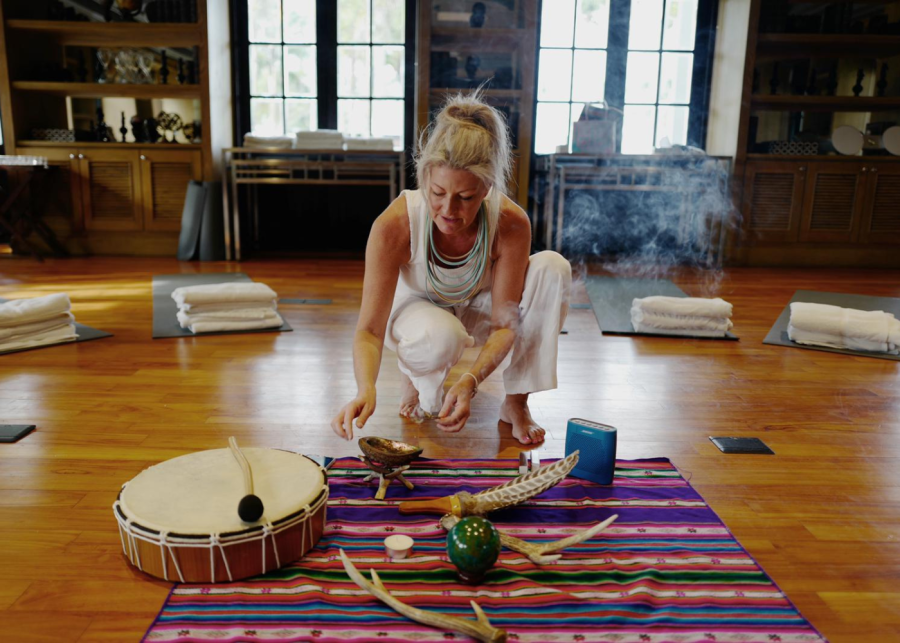
Because saying "yes" to everything isn’t a flex.
“Sure, I can do that,” said every overwhelmed worker ever. Sound familiar? Saying “no” at work can feel awkward, especially when you’re wired to say “yes” to every meeting or project. But boundaries are essential if you want to keep your sanity (and your work-life balance). We spoke to entrepreneurs who are on their way to mastering the art of the polite pass – they share how setting boundaries has saved their energy and helped their businesses thrive.
How to say “no” at work
Start small: Pause before you respond

“Before I learned to listen to myself, I wore the ‘Nice Girl’ mask, saying ‘yes’ even when my body screamed ‘no’. Burnout, anxiety, and resentment became my norm. It led to breakdowns in my closest relationships, and I felt overwhelmed at work, even though it looked like I had it all together. My health deteriorated.
Now, as a somatic trauma-informed coach, I help women set boundaries that support their well-being, strengthen their relationships, and empower them to thrive on their own terms. Start small. Pause before responding. Get clear on your values. Your ‘no’ makes space for your ‘yes’.”
– Sophie Leung, somatic trauma informed coach at Sophie Leung Co
Understand your priorities

“Saying ‘no’ was essential when I became a mother and realised how stretched thin I was between work, my baby, and everything else. Recently, I turned down a collaboration that didn’t align with Ohana Therapy’s values. It was tough, but it freed up my time for family and meaningful projects.
My tip? Get clear on your priorities and remember that every ‘no’ is a ‘yes’ to something more important. Overcoming the fear of saying no starts with recognising that you can’t pour from an empty cup. Boundaries aren’t selfish; they’re necessary.”
– Wanda Wijaya, director & speech language therapist at Ohana Therapy
(Kind) honesty is the best policy

“Saying ‘no’ is a powerful act of self-care. As a founder and mum, I used to say yes to everything – until burnout hit. I once declined a high-visibility event right after a big launch to prioritise rest and time with my family. The result? I came back refreshed, with better ideas and energy.
My tip: be honest but kind. Remember that ‘no’ isn’t rejection – it’s redirection. Start small and honour your capacity. Boundaries protect your peace, and saying no often creates space for the right yes. It’s not selfish – it’s necessary for sustainable growth and well-being.”
– Kriti Gupta, founder and CEO of Nimbu
Consider if it’s worth your time

“Saying ‘no’ didn’t come naturally to me, especially when I felt I had to do it all. But as an F&B entrepreneur, I’ve learned that time and energy are limited resources. I used to say yes to everything, only to feel stretched thin.
Now, I pause and ask, is this worth my time right now? I once skipped a work event to focus on a key project, and the clarity it gave me was priceless. Boundaries protect your energy. Saying ‘no’ can feel uncomfortable, but it’s a powerful way of saying yes to yourself and what truly matters.”
– Andrea Lee, founder of The Clean Addicts
Say it clearly, with kindness and respect

“The fear of saying ‘no’ is perfectly normal. I’ve experienced it too. I don’t want to disappoint anyone, but at the same time, I don’t want to force myself into something that feels uncomfortable or pushes my boundaries.
When we protect and prioritise our resources, time, energy, and well-being, we’re better able to help and support others in a meaningful way. Learning to say no is a powerful practice. Some people may feel upset at first, but that’s okay. What matters is that you say it with clarity, kindness, and respect.
Setting healthy boundaries isn’t selfish; it’s necessary. It protects your energy, your focus, and your ability to show up fully for what truly matters. The people who truly value you will always respect you. So, don’t be afraid to say no. It’s one of the kindest things you can do for yourself and others.”
– Tatiana Gromenko, founder of SGB VA
Plan ahead for circumstances that test you

“In many Asian cultures, saying ‘yes’ is often tied to values of social harmony, respect, and a desire to fit in. But this can come at the cost of our mental and physical well-being. As a counsellor and entrepreneur, I see how often people agree to things half-heartedly out of obligation or guilt. It’s something I’ve had to work on, too.
One of the most effective things I’ve learned (and now teach) is to create mental pre-plans for situations that may test your boundaries. For example, if I know I have an intense week ahead, I pre-decide to say no to social events or networking invites, no matter how appealing they may seem.
On the flip side, if I recognise an opportunity that makes my anxious self hesitate, but my rational self knows it’s aligned with my goals, then I say yes intentionally. Saying ‘no’ isn’t about being dismissive – it’s about being deeply respectful of your own time and energy.”
– Marissa Nasution, research psychologist and counsellor
Know your limits

“As a social media agency owner, mastering the art of saying ‘no’ has been crucial for protecting my time, energy, and mental health. In an industry that never sleeps, setting healthy boundaries is essential. I’ve implemented strict office hours and clear communication channels to manage client expectations effectively.
To overcome the fear of saying ‘no’, I focus on the long-term benefits of sustainability over short-term gains. It’s about respecting your limits and understanding that saying ‘no’ isn’t a rejection – it’s a necessary affirmation of your values and priorities. This mindset shift helps maintain quality in our work and life.”
– Adelphia Lim, founder of For The Love of Socials
Set clear boundaries

“Setting boundaries is an inner and outer game. It’s worth defining our values and priorities, and tuning into the feeling of dissonance that happens when boundaries are breached. Our bodies and energy systems always signal when we’re out of alignment with our truth, either through allowing those breaches or through the choices we make.
There have been times (though not often) when I said ‘no’ to community members whose behaviour was disrupting my groups. When the main community sees that they are safeguarded from divisive behaviour, solicitation or arrogance, loyalty and perceived value grow.
Another important aspect of boundary setting is how we go about doing it. The art of establishing unyielding boundaries softly and elegantly is much more powerful and less disruptive than a hard ‘no’.”
– Danielle Van de Velde, founder of Spirited Living & Spirited Business
Remember: every ‘no’ makes space for a ‘yes’ that truly matters.

